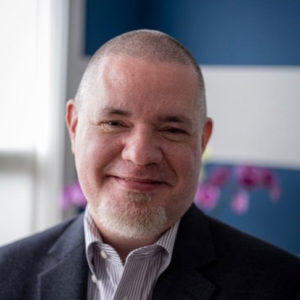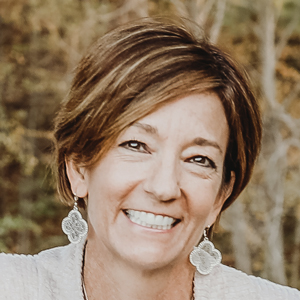
unleashing-your-superpowers
An interview with Rob Gentry

unleashing-your-superpowers
In this transcript version of our Talk Retail to Me podcast, we welcome the newest member of the Parker Avery team, Rob Gentry. While he’s fairly new to our firm, Rob is certainly not new to the retail industry. He has over 20 years of consulting and project management experience across a wide variety of retail clients. Rob has managed or led several successful, multi-year retail transformation projects for several brands. He’s worked with leading software offerings in the areas of merchandise financial planning (MFP), product lifecycle management (PLM), order management, supply chain, logistics, and point of sale (POS). He most recently departed from Tradestone Software (now Bamboo Rose), and we are very pleased to have Rob aboard.
This podcast episode not only showcases Rob’s past experience and his “superpowers,” but also shines a light on what it’s like to work with The Parker Avery Group and the firm’s own unique character that truly sets it apart from the rest of the consulting world.
Deanna: It’s funny to be interviewing you because, maybe the audience doesn’t know—but we’ve known each other for a very long time. And it is my pleasure to get the opportunity to expose you and all of your skills and strengths to a broader audience. So, thanks for letting us do this today.
Rob: Absolutely, it’s my pleasure.
Deanna: Let’s get started with, how did you end up in retail?
Rob: “End up.” You make it sound like it’s a negative thing (laughter). I’ve always had an interest in retail and marketing. Originally, I wanted to be a hospital administrator and was in a college program to major in hospital administration. Unfortunately, in my sophomore year, they decided to cut that program, and I was left with business management. From there, I started working for various companies and became sort of a quality control specialist. I was hired by Retek, which got me into retail and working with retail software.
Deanna: Well, there are certainly a lot of parallels in hospitals and administration with retail—especially as a customer-focused synergy there, so I’m not surprised that retail would have been a good home for you. In your career in retail, you’ve gone from a huge software company (Retek), which was where you and I first met. That was 18 years ago—I did the math this morning, and now I feel very old (laughs).
Rob: So do I (laughs).
Deanna: But we met at Retek and we both went through the experience of being acquired by a massive company, Oracle. And when you left Retek, you went on to a very large, big 5 consulting organization, and since then you’ve moved to smaller firms. So maybe explain to me a little more about what’s driven those choices.
Rob: Certainly. I can tell you that at times, I’ve felt like a pendulum on a clock because I’ve swung back and forth from large to small. Each has its advantages and disadvantages. On one hand, working with a smaller organization gives you a feeling of really being more connected, being very entrepreneurial, and you feel less insulated from every day of what’s going on. The other part of that—from the larger side—you feel like more of a cog in the machine, you feel like a number. You’ve got different roles and responsibilities that are assigned to you that you don’t really get to spread your wings or have a lot of depth across the organization, so that’s really why I enjoy working with smaller organizations. I’ve cherished my time at all of the places I’ve worked; I’ve made great friends, and really enjoyed the time there, but my heart always goes back to a smaller organization, where I feel like I’m appreciated and really enjoy the one-on-one with different people.
Deanna: Well, I know we are super excited that your pendulum has swung back to the smaller firms. What are some of the things that you’re really excited to dive into now that you’re here at The Parker Avery Group?
Rob: Core merchandising is the area I get to really sink my teeth into. I’ve had the luxury of working with different retail software packages on the left and the right side of core merchandising, but not directly in core merch, so this is an exciting time and opportunity for me to really learn from my peers and the folks at Parker Avery to basically get the best understanding and level of detail possible in that space.
Deanna: That’s also one of the reasons I swung from big to small employers and partners in business. And I love that Parker Avery brings both strengths together, in the sense that we have some of the best and brightest in the industry who have such deep experience—which is something I know we both experienced at very large firms. You have access to people with that depth of skills at very large firms, but as you said, we get an opportunity to really dive in deeply and make a big difference as individuals at a firm this size.
Rob: I agree, and I think the beauty of this is that the people who are at Parker Avery are here because they truly love retail. This is the type of organization that you dream of working for when you specialize in a specific industry. The people here are 20+ veterans in retail, and that to me says everything about what Parker Avery stands for and what we can bring to the market for value.
This is the type of organization that you dream of working for when you specialize in a specific industry.
Deanna: That’s right. And I love that despite that depth of experience, which can sometimes get people entrenched—as in, “this is the way I’ve always done it.” There’s very little of that in our peer group. You’re new to Parker Avery, and I’m only slightly less new (as Tricia mentioned at the beginning), I feel like I’ve only been here two months in pandemic time (laughter) because my tenure has unfortunately been marked by this incredibly unprecedented and highly disruptive “thing” in our industry. But it’s certainly given me an opportunity to dive deeply into some internal work with the firm. From that vantage point, I feel like I’ve reconfirmed an assessment that I’ve had as an outsider to the firm: this is a team that not only loves this industry but loves learning and loves hearing other peoples’ opinions. This is really appreciated in a group of 20+ year veterans—and now you’re making us feel old again, Rob (laughs). But that’s an odd combination when you have people with that kind of depth and that kind of openness.
Tricia: I think it also has a lot to do with the respect that I certainly feel for the rest of the firm as well, because nobody is afraid to admit when they’re wrong, and everyone is open to new ideas. I think that speaks volumes about the firm, its people, and our leadership.
Rob: I think it also goes back to what I was saying in terms of working for larger organizations. Those tend to be cookie-cutter in their approaches and methodologies, so you’re almost pigeonholed to NOT learn something new because they want you to do it their way. So here, you’re getting that depth and breadth of knowledge from many different experiences “in the wild.”
Deanna: I mentioned the pandemic Rob, again with our shared experience, I don’t think either of us has seen anything like this in our industry, and with very few exceptions, this industry has been rocked in a very negative way. With all your experience in software and management consulting and process engineering, what are some of the things you’re bringing to the table as you work with retailers under these conditions to help them get through this and potentially even thrive under these conditions?
An outsider’s perspective lends itself to ideas that may not have been thought of internally, but certainly coming to the table with a wild idea takes courage and sometimes it can be very rewarding for that idea to take flight.
Rob: It’s a great question and really interesting times. I never envisioned my life to be what it is today and spending my 50th birthday in my house—a milestone birthday. The way I look at the pandemic, I look at it on two levels, basically. The first is the human and emotional level, because this is a time that’s trying for all of us, and especially in the retail industry, brick-and-mortars were already being beaten by e-commerce, so people are nervous and scared. So I get it. The other part is, it’s a new way of working. For example, just as the pandemic was striking, I was two weeks into an eight-week design session with a customer, and while most of our clients were putting things on hold, they decided to move forward, and we had to shift our entire way of working with them. People go from an office every day to telecommuting from their homes and being on Zoom. Working through that took some agility to change not only our approach to how we were working with clients, but also being empathetic to their plight. And from a business perspective, it sounds cliché, but that thinking outside the box attitude of going above and beyond and looking for the unorthodox ways that you could potentially help a business grow, looking for alternative revenue streams, different ways of selling and reaching your customer, even different marketing strategies. Those are the things that I think we should be advocating and helping our customers with. Even though it may not be “normal,” we have to think “un-normal” in the current circumstances.
Deanna: It sounds cliché, but it’s really not—to think how powerful our experience of thinking outside the box is under these conditions. As consultants, we’re asked often to come to look at a problem that a very smart team internally has been looking at for a while. We don’t come to the table with a new perspective necessarily on what the problem is, it’s on how to solve it—that’s why you bring in outsiders to assist. So we’re often very good at quickly identifying what’s not part of the solution as well as pointing out blind spots the client may not have noticed and suggesting diving deeper into certain areas. Those are really important skills, not only as practitioners but also in teaching our clients how to build muscle as individuals and as organizations. That’s not cliché at all under these circumstances.
Rob: Agreed. An outsider’s perspective certainly lends itself to ideas that may not have been thought of internally, but certainly coming to the table with a wild idea takes courage and sometimes it can be very rewarding for that idea to take flight.
Deanna: Another thing that’s related to that question, as somewhat “newbies” to the firm, one of the things our clients need to learn how to do is communicate with even less authority than they are used to having. There’s an authority that comes with proximity; when you’re sitting in a conference room, your behaviors and interaction with each other create a level of authority. Whether organizationally that structure permits you to behave that way or not, just the proximity to your professionals does. And now, we’re having to examine and model what the behavior needs to look like when you’re sitting on a Zoom call. What does it look like to influence each other from a distance, instead of having the benefit of proximity?
Rob: It certainly helps to have your dog quiet while you’re on the phone, but it’s a definite change. The new normal is being adaptable and open to disturbances. One of the things for me is being able to read body language and sense how the room is reacting to messaging that I’m putting out there. In this climate, it’s very difficult to scan the “Brady Bunch” screen and the nine or ten facial expressions and figure out if the messaging is landing properly. In those instances, it’s more touch bases, more communication back and forth, and checking in to make sure people are getting what they need.
Deanna: I agree. Something I didn’t appreciate was a skill I had that I’ve had to rely very heavily on under these conditions, both as a new employee and as a retailer facing a pandemic and remote work almost entirely across the board. What’s one of the things you would say is your “superpower?” I use that phrase when I think about something that I know under almost any condition, no matter what the scenario, my superpower is something I’m going to be really good at. What’s Rob Gentry’s superpower?
Rob: That’s a wonderful question. On a basic level, I would say it’s my empathy. And with that comes both negative and positive connotations. So, on the plus side, I can read a room really quickly, and I can sense when there’s something going wrong. It also helps me change my demeanor and fit the mood of the room as well. So that’s one of the positives. The other challenge though is that it can be very draining. For me personally, a lot of negative energy in a room can really make my role difficult, especially if I have to deliver bad news or if I have to negotiate an opposing opinion or view. That weighs on me because I can sense the negativity, and I can sense the pushback. That’s one of the areas that I am continuing to grow in, and for me to express myself and be able to keep it factual and keep the emotion out, but also keep the human element present.
Deanna: That’s great, thanks for sharing that. Again, going back to the “we met 18 years ago,” chapter of our story—I absolutely concur that you have very strong empathy. I was new to the software industry, I was new to consulting, I was new to proper project management, and I was partnered with you, thank goodness, and you were just a great mentor. Right out of the gate on day one, to be handed such a fresh person—a fresh talent perhaps, but very, very raw—maybe not even going to be a diamond so raw—and you were so empathetic and so helpful, and yet gave me so much room to be able to figure it out in my own way. And I remain eternally grateful for that, and it brings me so much joy to be able to work side-by-side with you again now because that is certainly one of your many superpowers.
Rob: Thank you, that’s very kind. Going back to what we talked about being in a small firm; [when I joined The Parker Avery Group], I was immediately welcomed with many different notifications, emails, etc. People offering to answer questions, let’s schedule lunch, coffee, and so on—all of that was fantastic. Assimilating very quickly with Robert Kaufman and John Lawing on the project; also Dave Birdsall in helping me understand some of the logistics and how we do things at Parker Avery—enabled me to very quickly get up to speed, and I was very pleased to have that experience to immediately start bringing value to a customer.
Deanna: What’s something people wouldn’t guess about you?
Rob: I’ve never been intoxicated.
Deanna: Really? (laughs) In this industry, how have you pulled that off?
Rob: I do drink, but never intoxicated. And I was in a fraternity so that’s important to know. I’ve always wanted to be a standup comedian. I took some improv classes a few years back, and I found those very interesting and fun. I think general shyness precludes me from wanting to be the person that I want to be, but all in all, I think I do pretty well. Also, I’ve seen Elvis in concert twice.
Tricia: Wow…the real Elvis? (laughs)
Rob: The real Elvis.
Deanna: These are great nuggets that I didn’t know or would have guessed about you either. I love it.
Rob: And then the one final thing, I’m a huge Star Trek fan. Over the years I started collecting screen-worn costumes and wardrobes from Star Trek. I have Star Trek action figures and toys all around me, so very much into that.
Deanna: That’s fantastic. Well, thank you, Rob. I hope everyone has gotten to know you a little better. We’re so excited you’re here, and that we get to work together in a proper stand-by-each-other kind of way instead of more distant, which is what the last 18 years have been. We’ve certainly been colleagues in a broader sense, but not in this direct sense, so I’m delighted to have this opportunity once again.
Rob: I remember running into you at the Minneapolis airport.
Deanna: Back in the days when we got to fly around.
Rob: Exactly. I don’t think you recognized me, but as soon as I said, “Hey.” You did.
Deanna: I was probably in a zone; you know how you are when you’re moving through the gates of an airport, goodness.
Tricia: Well maybe someday we’ll be traveling on airplanes again and you two can bump into each other again. Rob, you’re in Atlanta, and Deanna, you’re on the West Coast, so at some point, we’ll meet in the middle, right?
Deanna: Or wherever. Far, far away because we’ll be so pent up with the need to go—just go.





